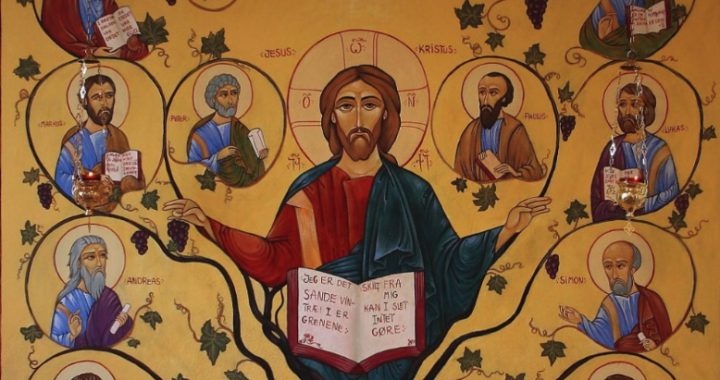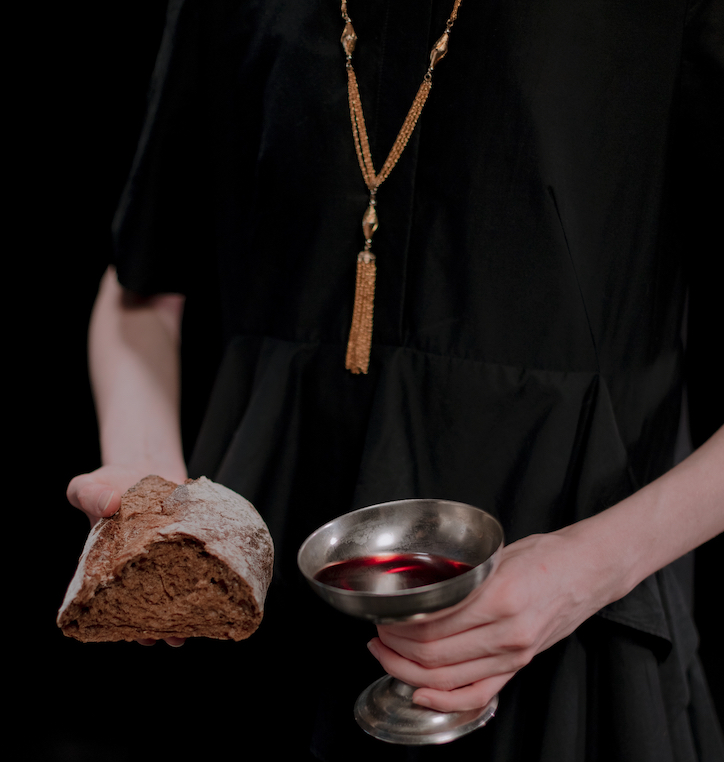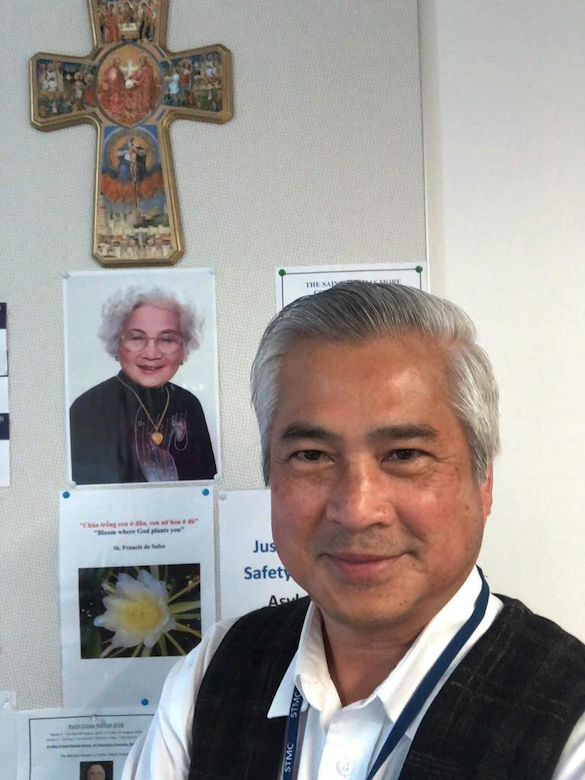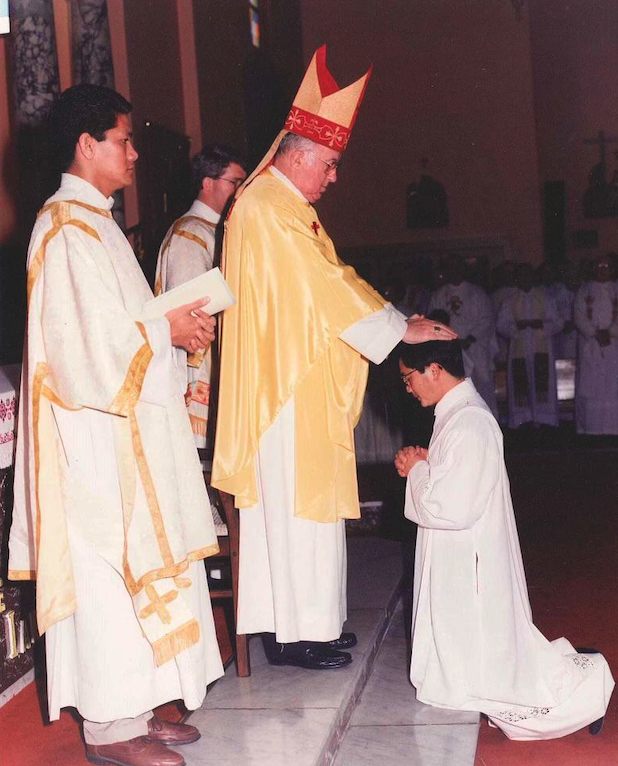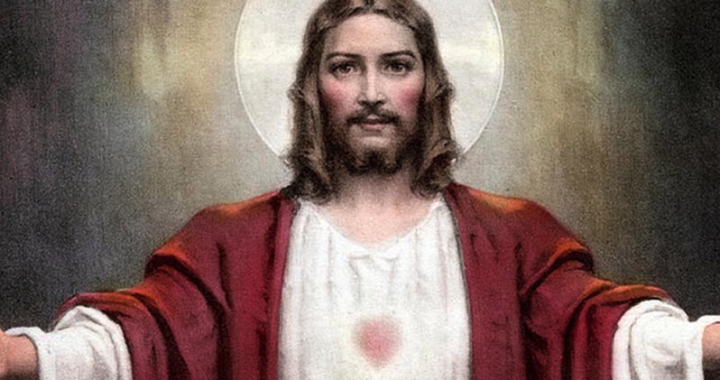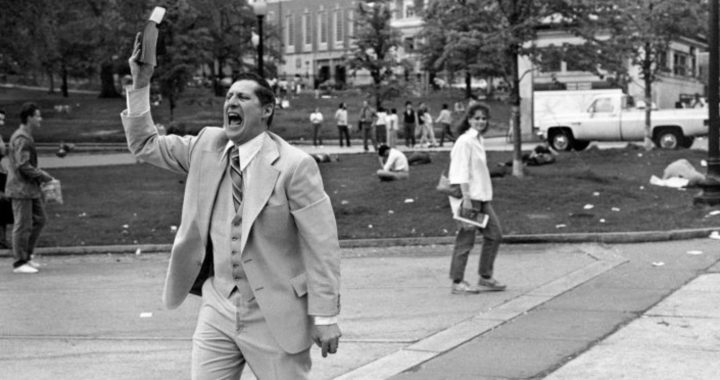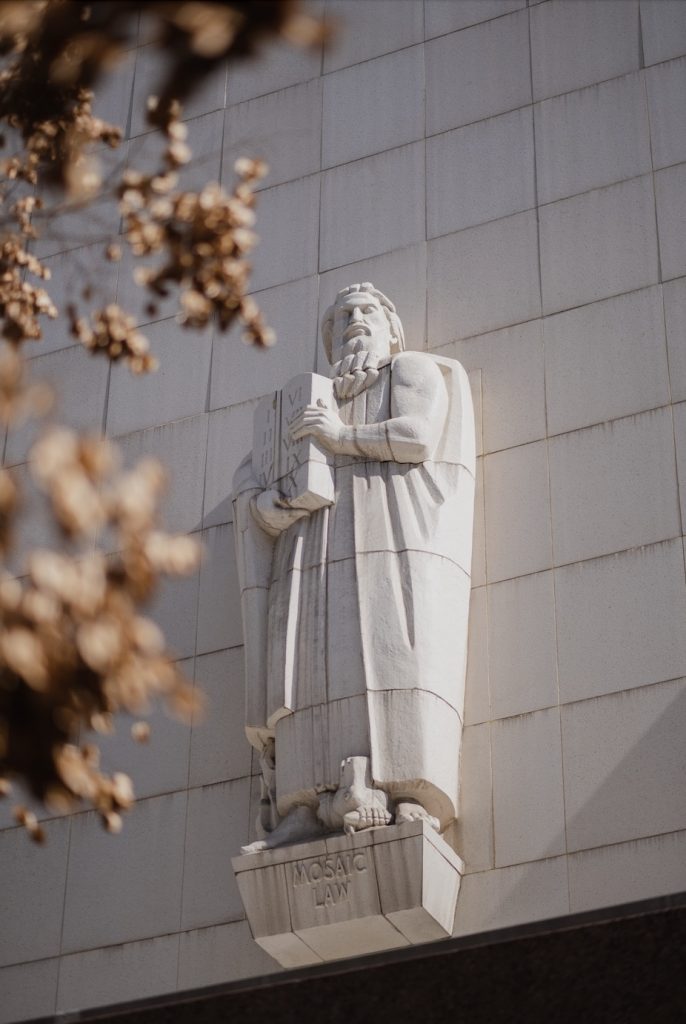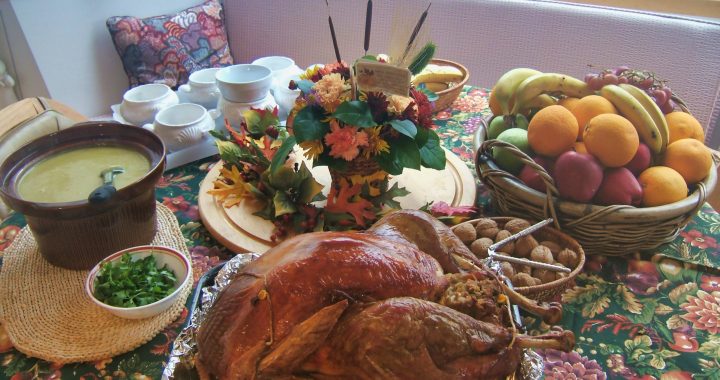He weaves beauty in our lives, but we won’t see the masterpiece until it is ready
In transit at Pulau Bidong, the feeling was that of someone without any relatives or friends living in countries that accepted refugees. Odds were I was unlikely to be resettled and would eventually be sent back to Vietnam.
But after more than six months living there in poor conditions, I was fortunate that an Australian humanitarian delegation had requested to interview me. They eventually decided I ticked all the right boxes as a refugee and allowed me to resettle in Australia. This was my greatest joy yet, for it opened a new path for me to answer God’s call to the priesthood.
I arrived in Perth, Western Australia on August 10, 1982. It is nearly 40 years since that day, and I have worked to devote all my time and energy to be a worthy student of God.
My first task was to learn English, which I could not speak or write, with the view that one day I could go back to the Seminary to continue my vocation to the priesthood. I was very fortunate to have first entered Saint Charles Seminary in Guildford, in the Archdiocese of Perth in 1982.
Later at the end of the following year, I moved to Sydney to join the Redemptorist Order.
In February 1984, I officially started my formation program with them and after 10 years, my Provincial Superior approved and recommended that I be ordained as a Redemptorist priest. This happy occasion came to pass at Our Lady of Perpetual Help Church in Maidstone Parish in Melbourne on 16 July 1994.
After my ordination, the Provincial Superior allowed me to pursue the second-year program of my Psychology studies at the University of Western Australia. I then went on to study for a Master of Moral Theology at the University of Notre Dame in early 1996.
After I gained Australian citizenship, by God’s grace I was invited to Vietnam to teach Moral Theology at the Redemptorist Seminary in Saigon (also known as Ho Chi Minh City). After a year of teaching there, I was sent to Rome to pursue a Doctorate in this subject at the Alphonsian Academy in Rome.
The Redemptorists founded the academy in 1949 and since 1960 began specialising in moral theology as a part of the Pontifical Lateran University’s Faculty of Theology.
On April 8, 2003, after three years in Italy, I completed my doctorate and returned to Australia to continue the mission God and the Redemptorist Congregation entrusted to me.
I can now reflect with clarity on the important events that have taken place in my life: From accepting God’s call to beginning my journey towards the priesthood in a very difficult situation and entering the “underground seminary” to having to decide to leave my homeland via the sea voyage.
Living in the Pulau Bidong Refugee camp, my days were filled with hardship, suffering and despair because I did not know what my future would be like and where it would go.
When I arrived in Australia, I was faced with new challenges. First, I found myself in a completely foreign culture and language. I was like a lost sheep and helpless as I was alone in a foreign land without any friends or relatives. Except One. God was the only friend I had, and He was my companion. I had faith in Him, who was full of love and mercy, and hoped He would never abandon me in my misery!
But Australia has given me a golden opportunity to continue my priestly vocation journey. It also provided me with a good and favorable environment to indulge in my studies, so that I can continue to follow my dreams. With so many ups and downs, and many important events that have since happened, I reflected that I had a view exactly like the boy in the story.
I saw underneath the tapestry God was weaving in my life and was confused, bewildered and felt hopeless. I thought I will never be able to continue my vocation journey, even after I escaped from Vietnam because when arrived in Australia, I found it difficult to learn English.
Enunciating English words drove me crazy, as it does not have a consistent rule to guide me how to pronounce them correctly. Then, I did not dare think that I would qualify to study philosophy and theology at the Major Seminary, even if I were accepted. There were times when I felt completely exhausted and was convinced I would fail in my vocational endeavours.

But mysteriously, God had His own plan and would carry it out to lead me through the twists and turns of my journey. I experienced the kind of melancholy mood of the two disciples on the way back to Emmaus, who were sad, depressed and desperate, because three days had passed and they still have not seen their Master risen from the dead, as he promised.
Like them, I wanted to retreat and give up, and to accept a return to my previous life. In that critical moment, Jesus himself appeared before me, just as He did to the two Emmaus disciples. He encouraged and gave me more energy, patience, and will-power so that I would be able to overcome the difficulties I was facing.
After 28 years since I was ordained as priest (1994-2022), I am amazed and realize it was God who weaved everything in my life. It was His hand that guided and led me to where I am today.
Indeed, He is a mighty God and a talented and brilliant embroiderer.
Only He can perform great things: from nothingness to existence, from the trivial to the great, from something ordinary to the extraordinary, from an unknown person to an evangelizer filled with a burning love of God’s good news and of His unconditional love for humanity.
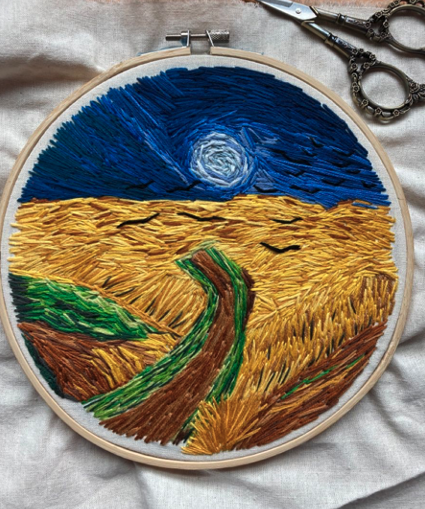
Dear God, I thank You with all my heart and would like to express my deep gratitude to you. Thank you for illuminating and revealing to me Your wonderful message through the story “God’s Embroidery”. It gives me an insight into Your marvelous plan, although it can sometimes be too mysterious for me and others to comprehend it fully.
I am so deeply grateful for whatever you have done in my life. You truly know what is best for me and how to form me according to your Son’s image. May you continue to transform and help me to realize that I need to be more patient with myself, and with the work you are doing at present.
I need to wait until Your embroidery is completed. Only then can I fully understand and see the masterpiece of Your embroidery, and that is also the finished article that You want to show me of my life through the ups and downs that You have allowed me to experience.
May I always trust you wholeheartedly in your divine providence and in a plan that you have for me, since you are my God, a merciful and loving Father.

